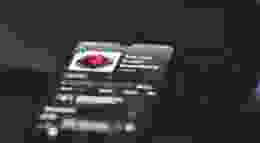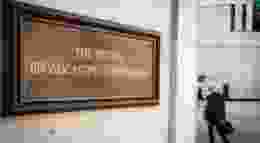
Embed critical thinking to protect against fake news
Following the publication of a report into how we access information, Jane Harley writes that it is crucial to embed critical thinking to ensure we can differentiate between real and fake news.
With a growing number of sources to consult, from traditional books and academic journals to search engines, newspaper websites, and of course social media, it's fair to say differentiating between fact and fiction is harder than ever. Added to that, the unprecedented events of the last two years have immeasurably changed the way we consume news and media, bringing the debate around misinformation into sharp focus.
For a start, we are spending more time than ever before online. The UK's communication regulator, Ofcom, found that the average daily time spent online in the UK increased from 3 hours 11 minutes in September 2018 to 4 hours 2 minutes in April 2020 as Covid-19 hit. As the world locked down, we not only turned to the internet for work and entertainment, but also to help us navigate the latest guidance and understand the truth.
The internet has an incredible power to inform, and digital platforms are now for many the first port of call when seeking information. Surveying 5,000 adults globally, our latest report, The Matter of Fact, found that two thirds of people head to Google or another search engine as a primary source for factual information. Meanwhile, almost half (46 per cent) say they have discovered a new fact from consulting social channels. This is around the same number that use educational textbooks and websites (38 per cent) and far more than those picking up a physical encyclopaedia or non-fiction book (17 per cent) to discover new facts.
However, increased internet use, and specifically, the proliferation of social media, has also been held accountable for facilitating and accelerating the spread of misinformation. In the context of the pandemic, this led to significant concern; for example, we saw the US government raise concerns over Facebook facilitating posts around vaccine misinformation.
Our research has shown that seven in 10 are finding it harder to clarify if something is true, and that the pandemic has made them more cautious about making this distinction (74 per cent, but higher in India, Mexico, and South Africa). A recent Ofcom study reinforces this; despite seven in 10 adults claiming confidence in identifying misinformation on the internet, only two in 10 could correctly identify the trademarks of an authentic post.
What's reassuring is that, despite most of us logging on to seek out new knowledge, after two years' exposure to scientists and academics talking about COVID-19, we still rely on experts when it comes to deciding what is credible or otherwise. Of those surveyed, almost eight in 10 (79 per cent) said they saw universities and academic institutions having an important role in helping them to differentiate between fact and fiction, while almost half (48 per cent) said they were confident something was truthful when it was backed up by relevant experts.
So, how do we bridge the gap between where we find our information and the sources that we trust? In our view, it's about boosting our ability to critically assess the information we read, online, or elsewhere.
As a publisher, we have a valuable role to play in championing quality research and enabling access to accurate, trustworthy information. However, what is more important, is encouraging open and honest discussion, and giving people the tools to interrogate ideas and information with confidence, from an early age.
In a world where we have an ever-increasing number of resources to turn to for information, we should be urging people to consult as many sources as possible and to question what is being shared as fact. It is by doing this that we can empower people to make sense of the world around them.
The current government has placed real emphasis on a knowledge-based curriculum and raising standards in reading. While this is crucial, we need to go above and beyond to ensure the next generation are not just memorizing and repeating what they read as the truth, but also have the skills to analyse information and read between the lines.
We must ensure that children, and people of all ages, are taught to think critically, using the language they learn to better interpret what they read, and ultimately, allowing them to share and apply knowledge wisely. And, as recommended in the Times Education Commission's recent report, we should be exploring ways to develop digital literacy alongside wider comprehension skills, building digital skills into the curriculum so that we have the tools to assess information received via a variety of sources.
Fiction still has its place, but to understand the world around us we need access to the facts and the ability to interrogate sources and raise questions before we trust the information we are looking at. Our focus, as citizens, teachers, parents, and peers, should be to embed critical thinking around the knowledge taught and help to make better sense of our changing world and the different viewpoints that exist, whether that's on or offline.







